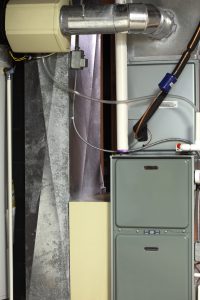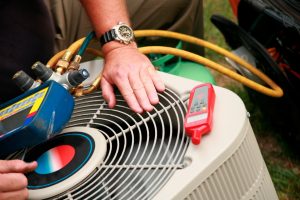Having proper duct size is vital to having a Portland air conditioning system that functions appropriately. If the air ducts are too small not enough cooled air will reach the intended rooms, if the ducts are too large the air will not have enough force to make its way from the AC to the room vents. As such there are some AC industry standards for duct sizing which should be followed by any Portland air conditioning professional.
Air Duct Sizing for Central AC Systems
While there are many misused rules of thumb in the AC industry, there are also some newer standards which have been put into place such as “Manual D” methods of design that have already begun to improve performance of AC systems in homes and offices.
There is a difference between what is needed for an AC system supply ducts and return ducts. Supply ducts tend to need smaller ducts while return ducts will often need to be larger.
Proper air duct sizing greatly depends on the square footage of the building being cooled, the air conditioner capacity or BTUs, how many ducts will be utilized, where they are positioned, and how many vents there are. Additionally, the entire system will need to be properly balanced so that the AC works efficiently.
Duct sizing is based on the air volume that will be produced and the velocity at which it will be flowing through the ducts. Determining the proper combination of these factors with the AC that will be used is essential to having a duct system that works efficiently. A good rule of thumb for proper air flow is to have anywhere from 600 to 900 feet per minute of air flow flowing through the ducts. To reach this, the cubic feet per minute will be determined, which will then be compared with a standard friction rate of 0.1 inches of water per 100 feet. This calculation will result in an appropriate duct size for either rectangular or round ducts based on the size of the building and how powerful the AC is.
Air ducts should be properly sized prior to being installed. Call The Clean Air Act, Inc. today to learn more about AC installation!


 Enjoying some relaxation inside a warm home on a cold day is a great feeling. Your furnace works hard to make sure that you can achieve this comfortable environment. If your furnace begins to struggle though, you are going to find yourself having trouble keeping warm.
Enjoying some relaxation inside a warm home on a cold day is a great feeling. Your furnace works hard to make sure that you can achieve this comfortable environment. If your furnace begins to struggle though, you are going to find yourself having trouble keeping warm. Furnaces are deceptively simple. Many homeowners imagine furnaces like they used to be in picture books: a big old iron box that you throw oil or wood into with great pipes that lead through the ceiling. Most furnaces are not like that. They’re complicated machines that function using gas or electric burners, constantly cycling through fuel to heat the air through your home.
Furnaces are deceptively simple. Many homeowners imagine furnaces like they used to be in picture books: a big old iron box that you throw oil or wood into with great pipes that lead through the ceiling. Most furnaces are not like that. They’re complicated machines that function using gas or electric burners, constantly cycling through fuel to heat the air through your home. Just because the word thermal is right in the middle of the word “geothermal” doesn’t mean that all these systems do is heat. That’s right–in addition to keeping your home warm and toasty in the winter, a geothermal system is able to keep your home cool and comfortable in the summer. Like all heat pumps, geothermal systems come equipped with a reversing valve, which allows for home heating and cooling. But how is a geothermal system different?
Just because the word thermal is right in the middle of the word “geothermal” doesn’t mean that all these systems do is heat. That’s right–in addition to keeping your home warm and toasty in the winter, a geothermal system is able to keep your home cool and comfortable in the summer. Like all heat pumps, geothermal systems come equipped with a reversing valve, which allows for home heating and cooling. But how is a geothermal system different? We’ve officially arrived at
We’ve officially arrived at
Join Us Online